#1962 FIFA World Cup
Explore tagged Tumblr posts
Text
By Andrew Das
January 7, 2024
(The New York Times) – Mário Zagallo, who as both a player and coach helped lead Brazil to four World Cup soccer championships, becoming a national hero and one of only three people to lift the tournament’s trophy in both roles, died on Friday in Rio de Janeiro. He was 92.
His death was confirmed by his family on his social media channels. Barra D’Or Hospital in Rio de Janeiro, where he had been a patient several times in recent months, said the cause was multiple organ failure.
An attack-minded wing as a player and a tactically minded coach known as “the Professor,” Zagallo was part of the Brazil teams that won consecutive World Cup championships in 1958 and 1962 and the head coach of Brazil’s 1970 champions.
His 1970 triumph made Zagallo the first person to win the World Cup as both a player and a coach, a feat that has since been matched only by Franz Beckenbauer of Germany and Didier Deschamps of France. But it may have been that team’s style of play as much as its success that cemented a recurring role for Zagallo in Brazilian soccer history.
Led by stars like his former teammate Pelé, Jairzinho and Carlos Alberto, Brazil’s 1970 squad is widely considered one of the best soccer teams ever assembled. It was forged in crisis after his popular predecessor fell out with the country’s military government: Zagallo was appointed as head coach less than two months before the tournament’s opening game. Zagallo found himself having to act as the coach of many players who had only recently been his teammates.
“It was easy to command, because the players saw and felt that I had the strength of personality to make the changes that I thought were necessary,” Zagallo recalled in a 2011 interview with The Blizzard, a quarterly soccer magazine. “I imposed myself — and this kind of leadership in front of the group is fundamental, even if you’ve participated in this group before as a player.”
The team adjusted to Zagallo’s tactical alterations and then danced and shimmied its way into the hearts and minds of fans not only in Brazil but around the globe.
#Mário Zagallo#Mario Zagallo#Brazil#Seleção Brasileira#World Cup#1958 FIFA World Cup#1962 FIFA World Cup#1970 FIFA World Cup#1994 FIFA World Cup#1998 FIFA World Cup#2002 FIFA World Cup#Flamengo#Botafogo#Fluminese#Vasco da Gama#Bangu#New York Times#obituary#yes I'm aware another World Cup winner as a player and a manager also passed today... I'll post that soon (Zagallo deserves recognition too
0 notes
Text
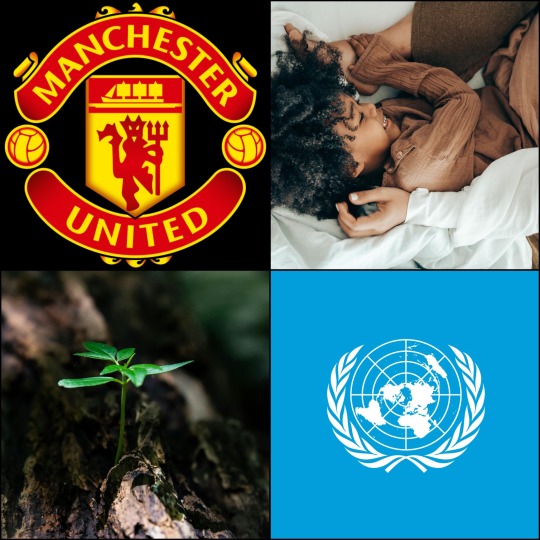
Norbert Raymond Leach, proud father, Muggle-born, and fighter of equality
Born in 1922, to Muggles Raymond (b. 1893) and Mary in Manchester with an elder brother Jerome (b. 1919) though often overshadowed. Often with odd abilities, Nobby always stood out and cared for tolerance.
By age eleven, Nobby learned he was a wizard and went to St. Hilda's Magical Abbey for two years. There, he met Algie Longbottom and Josh Fenwick and they joined Bruce McIntyre in Hufflepuff once they reached Hogwarts.
Nobby founded and captained the Football Club and was among the original Slug Club members. A stanch advocate in the M.V.F., yet only proud of recent Muggin blood and joined the Defender's Union upon founding in 1938. A year later, they defended Hogwarts against Zanos' attempts on the school.
After Hogwarts, Nobby and his roommates all joined the Royal Wizarding Navy yet Nobby and Algie were swayed to aid the Allianz out of peace. When they realized Grindelwald was wrong, they joined the Magical Progressive Cadet for true peace and acceptance. Nobby was elected leader.
After the war, Nobby married Jeanne Brodeur who had fought in the Magical French. A foreign aid officer, they had Hugo (b. 1951) and Caroline (b. 1953) abroad but settled in Manchester soon. Nobby rising as a diplomat, a scandal ensued revealing Nobby’s and Jeanne’s Muggle-born statuses pitting him more against Abraxas Malfoy, heavily involved.
Despite it, Nobby won nominations to run for the Magical Progressive Party and elected victoriously in the 1962 general wizarding election. Mass resignations from elders on the Wizengamot followed and heavy blame on the Scamanders for supposedly seeing a Muggle-born (former socialist) head of state and the first in the world.
Yet Nobby brings peace and understanding towards the conflicts of both worlds and has survived numerous assassination attempts. Even blamed for England’s win in the FIFA World Cup in 1966, he was a mere attendee. Recovering since the last assassination shot, the enemy has no possible way to get him now yet can Nobby run in next year’s 1969 election?
Read the full story in Cor Aut Mors, of the tale in the aftermath of a freer yet still trapped Hogwarts beginning in 1968 to find out the Progressive Party's influential decline.
(Photos from Pexels.com and the U.N. flag from Wikimedia)
9 notes
·
View notes
Text
Lula declares three-day national mourning for Brazil football great Zagallo
Mario Zagallo was one of three footballers to win the FIFA World Cup both as a player and manager.
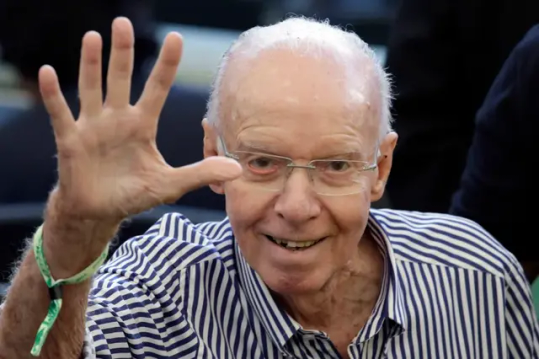
Brazilian President Luiz Inacio Lula da Silva has declared three days of national mourning for four-time World Cup-winning football legend Mario Zagallo, a day after his death at age 92.
Zagallo, who played alongside Pele in Brazil’s 1958 and 1962 World Cup-winning teams and later won the trophy as a coach, died on Friday of multiple organ failure, said the Barra D’Or Hospital in Rio de Janeiro, where he had been treated for a series of health problems in recent months.
Lula led a flood of tributes to the man known as the “Old Wolf”, who coached Brazil’s 1970 World Cup-winning side starring Pele – considered by many the greatest team in history – and served as assistant coach when the “Selecao” repeated the feat in 1994.
“He was one of the greatest football players and coaches of all time,” Lula said in a statement.
“Courageous, passionate… [he] leaves a lesson of love, dedication and the will to overcome for our country – and for world football.”
Continue reading.
#brazil#politics#soccer#sports#mario zagallo#luiz inacio lula da silva#brazilian politics#mod nise da silveira#image description in alt
4 notes
·
View notes
Text


DENNIS LAW (1940-Died January 17th 2024,at 84).Scottish footballer who played as a forward. His career as a football player began at Second Division Huddersfield Town in 1956. After four years at Huddersfield, he was signed by Manchester City for an estimated transfer fee of £55,000, which set a new British record. Law spent one year there before Torino bought him for £110,000, this time setting a new record fee for a transfer involving a British player. Although he played well in Italy, he found it difficult to settle there and signed for Manchester United in 1962, setting another British record transfer fee of £115,000.
Law spent 11 years at Manchester United, where he scored 237 goals in 404 appearances. His goals tally places him third in the club's history, behind Wayne Rooney and Bobby Charlton. He was nicknamed The King[3] and The Lawman by supporters, and Denis the Menace by opposing supporters. Law was also known as part of the "United Trinity", along with Charlton and George Best. He is the only Scottish player to have won the Ballon d'Or award, doing so in 1964, and helped his club win the First Division in 1965 and 1967, as well as the FA Cup in 1963 and two Charity Shields. He missed their European Cup final triumph in 1968 through injury.
Law left Manchester United in 1973 to return to Manchester City for a season, and represented Scotland at the 1974 FIFA World Cup. He played only two competitive games in the 1974–75 season, retiring before the start of the League programme proper. Law played for Scotland a total of 55 times and jointly holds the Scottish international record goal tally with 30 goals. Law holds a Manchester United record for scoring 46 competitive goals in a single season.Denis Law - Wikipedia
#Dennis Law#Scottish Footballers#Scottish Football Players#Footballers#Football Players#Manchester United#Manchester United Holy Trinity#Notable Deaths in January 2025#Notabke Deaths in 2025
1 note
·
View note
Text
pele net worth
Pele, often regarded as one of the greatest footballers in history, amassed a significant fortune through his illustrious career and global influence. As of his passing in 2022, Pele's net worth was estimated to be around $100 million. His earnings were derived not only from football but also from endorsements, sponsorships, and investments.
During his career, Pele played for Santos FC, New York Cosmos, and the Brazilian national team, winning three FIFA World Cups (1958, 1962, and 1970). Post-retirement, he became a global ambassador for football and endorsed brands like Puma, Hublot, and Subway.
Pele's wealth also came from media appearances, books, and business ventures. His net worth symbolized not only his financial success but also his unparalleled contribution to the sport. Pele’s legacy remains an inspiration, blending athletic excellence with entrepreneurial spirit.
Read more : https://www.geniusupdates.com/pele-net-worth-early-life-and-career/
0 notes
Text

Manoel Francisco dos Santos (October 28, 1933 - January 20, 1983) renowned Brazilian soccer player, was born in the State of Rio de Janeiro, Brazil. A congenial deformity of his leg bones earned him the childhood nickname of Garrincha, the little bird wren, small and frail. His life was tragic as his soccer was joyful, but he suffered from alcoholism as his father did, and he died poor.
He won two world cup titles, in 1958 and 1962. His physical condition made it hard for him to begin his soccer career. That condition allowed him to make his astounding dribbles, fooling his adversaries who could never anticipate in which direction his body would go.
In 1953, he joined Botafogo Club, in Rio de Janeiro, becoming a part of the national squad in 1955. His international record included 50 caps, and 12 goals, scoring 5 times in his 12 final World Cup matches. He led Brazil to two consecutive world titles after the demoralizing defeat at home during the 1950 FIFA World Cup in Rio de Janeiro.
“The joy of the people” (alegria do povo), and “the angel with bent legs,” were a few of the expressions associated with him. Paired with the legendary player Pelé during the late 1950s and 1960s, they helped create the notion of Brazil’s beautiful soccer that enchanted the world.
The joy he brought to the country and the sport of soccer did not materialize in his personal life. In his last years, after many broken relationships, he was involved in several car crashes, including running over his father and killing his mother-in-law, which only exacerbated his drinking. Nevertheless, it is for the delight of his game that he is remembered, as the embodiment of the promise of a better, more blissful, and ever triumphant Brazil. #africanhistory365 #africanexcellence
0 notes
Text
"Mengenal Sejarah Piala Dunia: Dari Turnamen Pertama Hingga Era Modern"

Mengenal Sejarah Piala Dunia: Dari Turnamen Pertama Hingga Era Modern
Piala Dunia adalah turnamen sepak bola terbesar dan paling bergengsi di dunia, yang melibatkan negara-negara dari seluruh penjuru bumi. Diselenggarakan setiap empat tahun oleh Fédération Internationale de Football Association (FIFA), Piala Dunia menjadi ajang di mana negara-negara terbaik berkompetisi untuk memperebutkan trofi yang paling didambakan dalam sepak bola internasional. Sejarah Piala Dunia mencerminkan perubahan dalam olahraga, geopolitik, dan teknologi, serta pertumbuhan sepak bola sebagai fenomena global.
1. Turnamen Pertama: Piala Dunia 1930 di Uruguay
Piala Dunia pertama diadakan pada tahun 1930 di Uruguay untuk merayakan ulang tahun kemerdekaan negara tersebut yang ke-100. Uruguay terpilih sebagai tuan rumah karena prestasi mereka sebagai juara sepak bola Olimpiade tahun 1924 dan 1928. Hanya 13 tim yang berpartisipasi dalam turnamen ini, dengan sebagian besar berasal dari Amerika Latin dan Eropa, karena jarak dan biaya perjalanan yang menjadi kendala bagi banyak tim Eropa.
Final Piala Dunia 1930 mempertemukan Uruguay dan Argentina, di mana Uruguay keluar sebagai juara dengan kemenangan 4-2, sekaligus menjadi negara pertama yang meraih gelar juara dunia. Meskipun berskala lebih kecil dibandingkan dengan turnamen modern, Piala Dunia 1930 menandai awal dari sebuah tradisi yang akan terus berkembang selama beberapa dekade berikutnya.
2. Piala Dunia Era Awal (1934–1950)
Turnamen kedua diadakan di Italia pada tahun 1934, dengan partisipasi yang lebih besar dari negara-negara Eropa. Italia berhasil memenangkan Piala Dunia ini di bawah rezim Benito Mussolini, yang memanfaatkan kesuksesan tim nasional sebagai alat propaganda politik. Italia mempertahankan gelar juara mereka di Piala Dunia 1938 di Prancis, menjadikan mereka tim pertama yang memenangkan dua gelar berturut-turut.
Setelah Piala Dunia 1938, sepak bola dunia dihentikan akibat Perang Dunia II. Piala Dunia tidak diadakan pada tahun 1942 dan 1946 karena konflik global ini. Setelah perang berakhir, Piala Dunia kembali diselenggarakan pada tahun 1950 di Brasil, di mana tim tuan rumah Brasil kalah dalam salah satu momen paling dramatis dalam sejarah sepak bola, dikenal sebagai "Maracanazo", ketika Uruguay mengalahkan Brasil 2-1 di Stadion Maracanã.
3. Piala Dunia Modern Pertama: Tahun 1954 di Swiss
Piala Dunia 1954 di Swiss menandai era baru dalam sepak bola internasional. Ini adalah turnamen pertama yang disiarkan secara internasional melalui televisi, membuka akses lebih luas bagi penonton di seluruh dunia. Final turnamen ini dianggap sebagai salah satu momen terbesar dalam sejarah sepak bola, ketika Jerman Barat mengalahkan favorit kuat Hungaria dalam "Keajaiban Bern". Kemenangan Jerman Barat menjadi simbol kebangkitan negara itu pasca Perang Dunia II.
4. Dominasi Brasil dan Era Pelé (1958–1970)
Era 1958 hingga 1970 dikenal sebagai masa kejayaan tim Brasil, terutama karena kehadiran Pelé, yang dianggap sebagai salah satu pemain sepak bola terbaik sepanjang masa. Brasil memenangkan Piala Dunia pertama mereka pada tahun 1958 di Swedia, dengan Pelé mencetak gol dalam kemenangan 5-2 melawan tuan rumah di final.
Brasil kembali memenangkan gelar Piala Dunia pada tahun 1962 di Chile, dan pada 1970 di Meksiko. Tim Brasil tahun 1970 sering disebut sebagai tim sepak bola terbaik sepanjang masa, dengan Pelé memimpin lini depan yang terdiri dari pemain-pemain hebat seperti Tostão, Rivelino, dan Jairzinho. Mereka menjadi tim pertama yang memenangkan Piala Dunia tiga kali.
5. Perkembangan Teknologi dan Komersialisasi Piala Dunia (1974–1998)
Pada Piala Dunia 1974 di Jerman Barat, sistem trofi berganti dari Jules Rimet Trophy menjadi FIFA World Cup Trophy yang masih digunakan hingga sekarang. Piala Dunia ini juga menampilkan "Total Football", gaya permainan revolusioner yang dipopulerkan oleh tim Belanda yang dipimpin oleh Johan Cruyff. Meskipun Belanda gagal memenangkan gelar setelah kalah dari Jerman Barat di final, gaya permainan mereka menginspirasi banyak tim di masa depan.
Piala Dunia tahun 1982 di Spanyol menandai perluasan turnamen menjadi 24 tim, memungkinkan lebih banyak negara untuk berpartisipasi. Italia memenangkan Piala Dunia ini, dengan Paolo Rossi menjadi bintang setelah membawa timnya meraih kemenangan di final melawan Jerman Barat.
Pada 1986, Piala Dunia diselenggarakan di Meksiko dan dikenang sebagai turnamen Diego Maradona, yang memimpin Argentina menuju gelar juara. Maradona mencetak dua gol ikonik melawan Inggris dalam perempat final: "Gol Tangan Tuhan" dan "Gol Abad Ini", yang menegaskan posisinya sebagai salah satu pemain terbesar dalam sejarah sepak bola.
6. Globalisasi Piala Dunia (1998–2014)
Piala Dunia 1998 di Prancis menandai pertama kalinya turnamen diikuti oleh 32 tim, mencerminkan semakin luasnya pengaruh sepak bola secara global. Tim tuan rumah, Prancis, yang dipimpin oleh Zinedine Zidane, mengalahkan Brasil 3-0 di final, menjadikan mereka juara dunia untuk pertama kalinya.
Piala Dunia 2002 di Korea Selatan dan Jepang menjadi turnamen pertama yang diselenggarakan di Asia, serta pertama kali diadakan di dua negara. Turnamen ini diwarnai oleh kejutan besar ketika Korea Selatan mencapai semifinal, sementara Brasil, dipimpin oleh Ronaldo, meraih gelar kelima mereka setelah mengalahkan Jerman di final.
Pada Piala Dunia 2010 di Afrika Selatan, turnamen ini tidak hanya bersejarah karena diadakan di benua Afrika untuk pertama kalinya, tetapi juga memperlihatkan kemenangan Spanyol, yang menjadi juara dunia untuk pertama kalinya setelah mengalahkan Belanda di final.
7. Piala Dunia Era Modern (2018–2022)
Piala Dunia 2018 di Rusia menandai era baru teknologi dalam sepak bola dengan diperkenalkannya Video Assistant Referee (VAR), yang bertujuan untuk membantu wasit dalam membuat keputusan lebih akurat. Prancis kembali menjadi juara dunia setelah 20 tahun, dipimpin oleh bintang muda Kylian Mbappé dan pemain bintang seperti Antoine Griezmann.
Piala Dunia 2022 di Qatar, yang merupakan edisi ke-22 turnamen, menjadi yang pertama diadakan pada musim dingin karena kondisi cuaca di Qatar. Meskipun ada banyak kontroversi sebelum turnamen, terutama mengenai hak asasi manusia dan kondisi pekerja di Qatar, turnamen ini tetap menarik perhatian dunia dan menyajikan pertandingan-pertandingan yang spektakuler.
Kesimpulan
Sejarah Piala Dunia mencerminkan lebih dari sekadar evolusi sepak bola; ini adalah cerminan perubahan sosial, ekonomi, dan budaya dunia. Dari turnamen pertama yang berskala kecil di Uruguay hingga menjadi acara global yang disiarkan ke miliaran orang di seluruh dunia, Piala Dunia terus memainkan peran penting dalam mempersatukan berbagai bangsa. Kompetisi ini tidak hanya merayakan keterampilan sepak bola tetapi juga membawa pesan persatuan, keberanian, dan semangat kompetisi yang adil. Piala Dunia tetap menjadi simbol dari apa yang membuat sepak bola begitu dicintai: ketegangan, drama, dan momen-momen yang abadi dalam sejarah olahraga.
0 notes
Text
Major international football championships
Status Post #11300: The Summer Olympics and the FIFA World Cup.
Summer Olympics (men's)
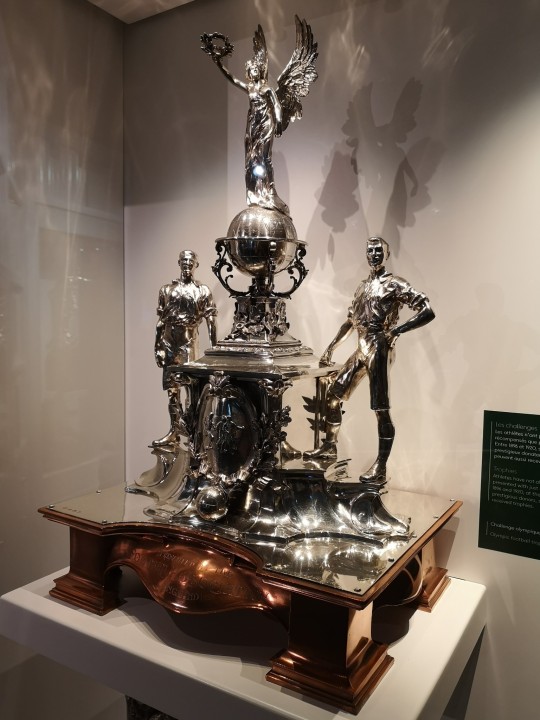
1900 - Great Britain / France / Belgium
1904 - Canada / United States (Christian Brothers College) / United States (St. Rose Parish)
1908 - Great Britain / Denmark / Netherlands / Sweden
1912 - Great Britain / Denmark / Netherlands / Finland
1916 - No event due to WWI
1920 - Belgium / Spain / Netherlands / Italy
1924 - Uruguay / Switzerland / Sweden / Netherlands
1928 - Uruguay / Argentina / Italy / Egypt
1932 - No event
1936 - Italy / Austria / Norway / Poland
1940 - No event due to WWII
1944 - No event due to WWII
1948 - Sweden / Yugoslavia / Denmark / Great Britain
1952 - Hungary / Yugoslavia / Sweden / West Germany
1956 - Soviet Union / Yugoslavia / Bulgaria / India
1960 - Yugoslavia / Denmark / Hungary / Italy
1964 - Hungary / Czechoslovakia / United Team of Germany / Egypt
1968 - Hungary / Bulgaria / Japan / Mexico
1972 - Poland / Hungary / East Germany and Soviet Union
1976 - East Germany / Poland / Soviet Union / Brazil
1980 - Czechoslovakia / East Germany / Soviet Union / Yugoslavia
1984 - France / Brazil / Yugoslavia / Italy
1988 - Soviet Union / Brazil / West Germany / Italy
1992 - Spain / Poland / Ghana / Australia
1996 - Nigeria / Argentina / Brazil / Portugal
2000 - Cameroon / Spain / Chile / United States
2004 - Argentina / Paraguay / Italy / Iraq
2008 - Argentina / Nigeria / Brazil / Belgium
2012 - Mexico / Brazil / South Korea / Japan
2016 - Brazil / Germany / Nigeria / Honduras
2020 - Brazil / Spain / Mexico / Japan
2024 - Spain / France / Morocco / Egypt
FIFA World Cup
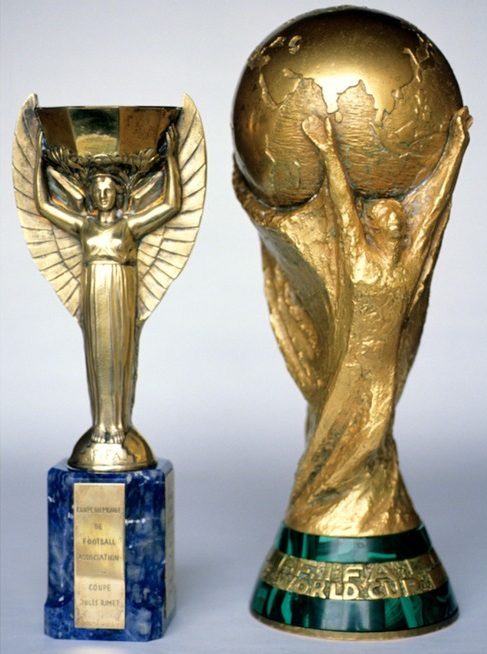
1930 - Uruguay / Argentina / United States / Yugoslavia
1934 - Italy / Czechoslovakia / Germany / Austria
1938 - Italy / Hungary / Brazil / Sweden
1942 - No event due to WWII
1946 - No event due to WWII
1950 - Uruguay / Brazil / Sweden / Spain
1954 - West Germany / Hungary / Australia / Uruguay
1958 - Brazil / Sweden / France / West Germany
1962 - Brazil / Czechoslovakia / Chile / Yugoslavia
1966 - England / West Germany / Portugal / Soviet Union
1970 - Brazil / Italy / West Germany / Uruguay
1974 - West Germany / Netherlands / Poland / Brazil
1978 - Argentina / Netherlands / Brazil / Italy
1982 - Italy / West Germany / Poland / France
1986 - Argentina / West Germany / France / Belgium
1990 - West Germany / Argentina / Italy / England
1994 - Brazil / Italy / Sweden / Bulgaria
1998 - France / Brazil / Croatia / Netherlands
2002 - Brazil / Germany / Turkey / South Korea
2006 - Italy / France / Germany / Portugal
2010 - Spain / Netherlands / Germany / Uruguay
2014 - Germany / Argentina / Netherlands / Brazil
2018 - France / Croatia / Belgium / England
2022 - Argentina / France / Croatia / Morocco
FIFA Women's World Cup
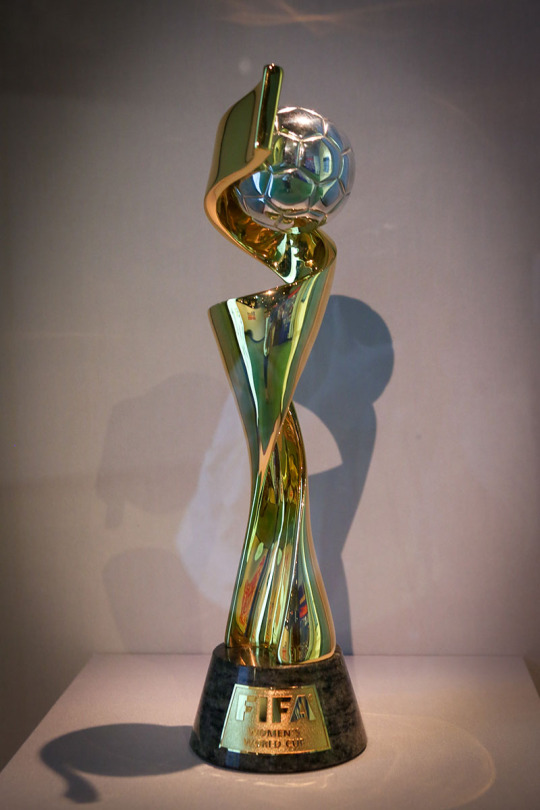
1991 - United States / Norway / Sweden / Germany
1995 - Norway / Germany / United States / China
1999 - United States / China / Brazil / Norway
2003 - Germany / Sweden / United States / Canada
2007 - Germany / Brazil / United States / Norway
2011 - Japan / United States / Sweden / France
2015 - United States / Japan / England / Germany
2019 - United States / Netherlands / Sweden / England
2023 - Spain / England / Sweden / Australia
Summer Olympics (women's)
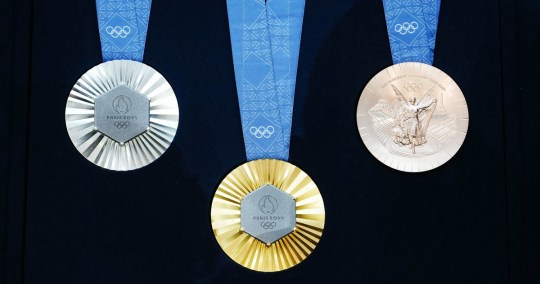
1996 - United States / China / Norway / Brazil
2000 - Norway / United States / Germany / Brazil
2004 - United States / Brazil / Germany / Sweden
2008 - United States / Brazil / Germany / Japan
2012 - United States / Japan / Canada / France
2016 - Germany / Sweden / Canada / Brazil
2020 - Canada / Sweden / United States / Australia
2024 - United States / Brazil / Germany / Spain
1 note
·
View note
Text
Events 7.30 (after 1930)
1930 – In Montevideo, Uruguay wins the first FIFA World Cup. 1932 – Premiere of Walt Disney's Flowers and Trees, the first cartoon short to use Technicolor and the first Academy Award winning cartoon short. 1945 – World War II: Japanese submarine I-58 sinks the USS Indianapolis, killing 883 seamen. Most die during the following four days, until an aircraft notices the survivors. 1956 – A joint resolution of the U.S. Congress is signed by President Dwight D. Eisenhower, authorizing In God We Trust as the U.S. national motto. 1962 – The Trans-Canada Highway, the then longest national highway in the world, is officially opened. 1965 – U.S. President Lyndon B. Johnson signs the Social Security Act of 1965 into law, establishing Medicare and Medicaid. 1966 – England defeats West Germany to win the 1966 FIFA World Cup at Wembley Stadium after extra time. 1969 – Vietnam War: US President Richard Nixon makes an unscheduled visit to South Vietnam and meets with President Nguyễn Văn Thiệu and U.S. military commanders. 1971 – Apollo program: On Apollo 15, David Scott and James Irwin in the Apollo Lunar Module Falcon land on the Moon with the first Lunar Rover. 1971 – An All Nippon Airways Boeing 727 and a Japanese Air Force F-86 collide over Morioka, Iwate, Japan killing 162. 1974 – Watergate scandal: U.S. President Richard Nixon releases subpoenaed White House recordings after being ordered to do so by the Supreme Court of the United States. 1975 – Jimmy Hoffa disappears from the parking lot of the Machus Red Fox restaurant in Bloomfield Hills, Michigan, a suburb of Detroit, at about 2:30 p.m. He is never seen or heard from again. 1978 – The 730: Okinawa Prefecture changes its traffic on the right-hand side of the road to the left-hand side. 1980 – Vanuatu gains independence. 1980 – Israel's Knesset passes the Jerusalem Law. 1981 – As many as 50,000 demonstrators, mostly women and children, took to the streets in Łódź to protest food ration shortages in Communist Poland. 1990 – Ian Gow, Conservative Member of Parliament, is assassinated at his home by the IRA in a car bombing after he assured the group that the British government would never surrender to them. 2003 – In Mexico, the last 'old style' Volkswagen Beetle rolls off the assembly line. 2003 – Three years after the death the last Pyrenean ibex, Celia, a clone of her is born only to subsequently die from lung defects. Within minutes, the Pyrenean ibex becomes the first and so-far only species to have ever gone de-extinct as well as go extinct twice. 2006 – The world's longest running music show Top of the Pops is broadcast for the last time on BBC Two. The show had aired for 42 years. 2006 – An Israeli airstrike kills 28 Lebanese civilians, including 16 children. 2011 – Marriage of Queen Elizabeth II's eldest granddaughter Zara Phillips to former rugby union footballer Mike Tindall. 2012 – A train fire kills 32 passengers and injures 27 on the Tamil Nadu Express in Andhra Pradesh, India. 2012 – A power grid failure in Delhi leaves more than 300 million people without power in northern India. 2014 – Twenty killed and 150 are trapped after a landslide in Maharashtra, India. 2020 – NASA's Mars 2020 mission was launched on an Atlas V rocket from Cape Canaveral Air Force Station.
0 notes
Text
World Cup Records: Which Countries Have Made History?

The FIFA World Cup, the pinnacle of international football, is an event where nations compete with passion and skill to etch their names in history. Over the years, the tournament has seen numerous records set and broken, with countries achieving remarkable feats that resonate with fans worldwide. Dish Network, with its extensive sports coverage, has been a key player in broadcasting these historic moments to audiences far and wide. In this article, we delve into the countries that have made history in the World Cup, highlighting their records and memorable achievements.
Brazil: The Quintessential Champions
Brazil is synonymous with World Cup success. The South American nation holds the record for the most World Cup titles, having won the tournament five times (1958, 1962, 1970, 1994, and 2002). Their brand of football, characterized by flair, creativity, and technical prowess, has dazzled fans for decades. Icons like Pelé, who is the only player to have won three World Cups, and Ronaldo, known for his goal-scoring exploits, have become legends of the game.
Germany: The Model of Consistency
Germany is renowned for its consistency and efficiency in the World Cup. The German national team has won the tournament four times (1954, 1974, 1990, and 2014). Germany also holds the record for the most appearances in the final, having reached this stage eight times. Their 7-1 demolition of Brazil in the 2014 semi-final is one of the most memorable matches in World Cup history, showcasing their clinical and ruthless approach to the game.
Italy: Masters of Defense
Italy, another European powerhouse, has also won the World Cup four times (1934, 1938, 1982, and 2006). Known for their defensive solidity, the Italian team has produced some of the finest defenders and goalkeepers in football history, such as Franco Baresi and Gianluigi Buffon. Their triumph in 2006 was particularly memorable, as they defeated France in a dramatic penalty shootout in the final.
Argentina: The Maradona and Messi Legacy
Argentina’s World Cup history is often associated with two of the greatest footballers of all time: Diego Maradona and Lionel Messi. The Argentine national team has won the tournament twice (1978 and 1986). Maradona’s “Hand of God” goal and his subsequent solo effort against England in the 1986 quarterfinal remain etched in football folklore. Messi, despite his numerous individual accolades, is still on the quest to secure a World Cup title, with Argentina’s best recent finish being a runner-up spot in 2014.
Uruguay: The Early Dominators
Uruguay may be a small nation, but its impact on World Cup history is significant. Uruguay won the inaugural World Cup in 1930 and added another title in 1950. Their 1950 victory is particularly notable as they defeated Brazil in the final match in front of a massive crowd at the Maracanã Stadium in Rio de Janeiro, a match famously known as the “Maracanazo.”
France: The Modern Powerhouse
France has emerged as a modern powerhouse in World Cup football. The French national team has won the tournament twice (1998 and 2018). Their 1998 victory, on home soil, was marked by a 3-0 win over Brazil in the final, with Zinedine Zidane scoring two crucial goals. In 2018, a new generation of French talent, led by Kylian Mbappé and Antoine Griezmann, secured their second title with a 4-2 victory over Croatia.
Spain: The Tiki-Taka Triumph
Spain’s dominance in international football culminated in their first World Cup victory in 2010. Known for their “tiki-taka” style of play, characterized by short passing and maintaining possession, Spain defeated the Netherlands 1-0 in the final, with Andrés Iniesta scoring the decisive goal. This victory was part of a golden era for Spanish football, which also saw them win two consecutive European Championships (2008 and 2012).
England: The Birthplace of Football
England, often regarded as the birthplace of football, won the World Cup once, in 1966. The English national team’s victory came on home soil, with a 4-2 extra-time win over West Germany in the final at Wembley Stadium. Geoff Hurst’s hat-trick in the final remains one of the most iconic performances in World Cup history.
Netherlands: The Eternal Bridesmaids
The Netherlands is known for their stylish and attacking brand of football, yet they have never won the World Cup despite reaching the final three times (1974, 1978, and 2010). The Dutch team, featuring legendary players like Johan Cruyff, has left an indelible mark on the tournament, with their innovative “Total Football” philosophy.
Other Notable Mentions
Countries like Croatia, which reached the final in 2018, and Portugal, with their star player Cristiano Ronaldo, have also made significant contributions to World Cup history. Croatia’s run to the final was remarkable for a nation with a small population, while Ronaldo continues to chase World Cup glory to cement his legacy.
Dish Network’s Role in Bringing World Cup History to Homes
Dish Network has played a crucial role in bringing these historic World Cup moments to fans across the globe. With extensive coverage, high-definition broadcasts, and expert analysis, Dish Network ensures that viewers do not miss any action from the tournament. Their commitment to sports broadcasting has helped fans connect with the excitement and drama of the World Cup, creating memories that last a lifetime.
Conclusion
The FIFA World Cup is a celebration of football that transcends borders and unites nations. Countries like Brazil, Germany, Italy, and Argentina have set records and achieved feats that have become integral to the sport’s history. Through the lens of Dish Network, fans have witnessed these moments of glory, heartbreak, and triumph. As the tournament continues to evolve, new records will be set, and new stories will be written, ensuring that the World Cup remains the ultimate stage for football excellence.
#dish packages seniors#dish similar companies#dish network deals#dish network remote codes#dish network installation#dish network outages
0 notes
Text
The Evolution of the World Cup: From 1930 to Today

Introduction: The FIFA World Cup is the most prestigious football tournament in the world, capturing the hearts of millions of fans every four years. Since its inception in 1930, the World Cup has undergone significant changes, evolving in format, rules, and global impact. This article explores the journey of the World Cup from its early days to its current status as a global phenomenon.
1. The Inaugural Tournament: 1930 The first FIFA World Cup was held in Uruguay in 1930, with only 13 teams participating. Uruguay, celebrating its centenary of independence, was chosen as the host country. The tournament was a groundbreaking event, marking the first time national teams competed for the title of world champions. Uruguay won the inaugural World Cup, defeating Argentina 4-2 in the final.
2. Early Years and Growing Pains: 1934-1950 The early years of the World Cup were marked by challenges, including political tensions and the impact of World War II. The 1934 and 1938 tournaments saw European dominance, with Italy winning both titles. The World Cup was suspended during the war years and resumed in 1950 in Brazil, where the famous "Maracanazo" occurred – Uruguay's stunning victory over Brazil in the final match.
3. The Birth of Modern Football: 1954-1970 The 1954 World Cup in Switzerland introduced a more structured tournament format and was the first to be televised. Hungary's "Mighty Magyars" were the favorites, but West Germany emerged victorious in a surprise win. The following decades saw the rise of legendary players like Pelé, who led Brazil to three World Cup victories (1958, 1962, and 1970), solidifying Brazil's status as a football powerhouse.
4. Expanding the Global Reach: 1974-1994 The World Cup continued to grow in popularity and global reach. The 1974 tournament in West Germany introduced a new trophy, replacing the Jules Rimet Trophy. The 1982 World Cup in Spain expanded to include 24 teams, reflecting the increasing number of competitive national teams worldwide. The 1994 World Cup in the United States was a landmark event, showcasing football's potential in new markets and setting attendance records.
5. Technological Advancements: 1998-2010 The late 1990s and early 2000s saw significant technological advancements in the World Cup. The 1998 tournament in France expanded to 32 teams, providing more opportunities for countries to compete on the world stage. Innovations in broadcasting technology brought the games to a global audience with enhanced coverage and analysis. The 2010 World Cup in South Africa was the first on the African continent, highlighting the sport's global diversity.
6. The Role of Women’s World Cup: 1991-Present The FIFA Women’s World Cup, first held in 1991, has played a crucial role in promoting women's football. The tournament has grown in prestige and popularity, with the 2019 Women's World Cup in France setting viewership records. The success of the women's tournament has paralleled the men's, contributing to the overall evolution of the World Cup as an inclusive and global event.
7. Controversies and Challenges: 2002-Present The World Cup has faced its share of controversies, from corruption scandals within FIFA to debates over hosting rights and working conditions. The 2002 World Cup, co-hosted by South Korea and Japan, was the first in Asia and marked by surprising results. The 2022 World Cup in Qatar has been scrutinized for human rights concerns, prompting discussions about the responsibilities of hosting nations.
8. Advances in Technology and VAR: 2018-Present The introduction of Video Assistant Referee (VAR) technology in the 2018 World Cup in Russia marked a significant shift in officiating. VAR aimed to improve decision-making accuracy and fairness, though it also sparked debates about its impact on the flow of the game. The 2018 tournament was praised for its competitive matches and high level of play, with France emerging as the champions.
9. The Future of the World Cup: 2026 and Beyond Looking ahead, the 2026 World Cup will be jointly hosted by the United States, Canada, and Mexico, expanding the tournament to 48 teams. This expansion aims to increase global participation and competitiveness. Future World Cups will likely continue to embrace technological innovations and sustainability initiatives, reflecting broader trends in sports and society.
10. The World Cup’s Cultural Impact: The World Cup's influence extends beyond football, shaping global culture and fostering international unity. The tournament provides a platform for cultural exchange, national pride, and collective celebration. The stories, emotions, and memories created by the World Cup transcend borders, making it a truly universal event.
Conclusion: From its humble beginnings in 1930 to its current status as a global spectacle, the World Cup has evolved in countless ways. Each tournament brings new stories, innovations, and challenges, reflecting the dynamic nature of football and its impact on the world. As we look forward to future World Cups, the tournament's rich history reminds us of its enduring power to inspire and unite people across the globe. Read more
0 notes
Text
ทีมชาติบราซิลเคยชนะแชมป์โลกกี่ครั้งแล้ว?
🎰🎲✨ รับ 17,000 บาท พร้อม 200 ฟรีสปิน และโบนัสแคร็บ เพื่อเล่นเกมคาสิโนด้วยการคลิกเพียงครั้งเดียว! ✨🎲🎰
ทีมชาติบราซิลเคยชนะแชมป์โลกกี่ครั้งแล้ว?
ทีมชาติบราซิลถือเป็นหนึ่งในทีมชาติฟุตบอลที่มีประวัติการชนะแชมป์โลกมากที่สุดในโลก โดยเป็นเจ้าบ้านสามครั้งในปี 1958, 1962 และ 2014 ซึ่งเป็นปีที่ทีมชาติบราซิลชนะแชมป์โลกเป็นครั้งแรก ทีมชาติบราซิลนี้มีประวัติการเอาชนะในฟุตบอลโลกอย่างยิ่ง มีผลงานที่ยิ่งในการเป็นทีมชาติที่ครองแชมป์โลกมากที่สุดในประวัติศาสตร์ นอกจากนี้ทีมชาติบราซิลยังเคยเข้ารอบบุกส์ 8 ครั้ง และครองแชมป์เครื่องหมายทองครั้งที่ 5 ในปี 2ใน60 โดยพัฒนาการจนเป็นทีมที่คงถึง ในระดับโลกที่สุด ประสิทธิผล จากความมุ่งมั่นและการพัฒนา ทีมชาติบราซิลยังเป็นทีมที่หลายคนหวังดีจะเจอในการแข่งขันระดับโลก ซึ่งเป็นทีมที่ทรงกล้าและมีคุณภาพ ทีมชาติบราซิลจึงมีพื้นฐานแข็งแรงและสามารถต่อสู้กับทีมชาติที่มีคุณภาพเยี่ยงกัน ดังนั้นไม่แปลกใจที่ทีมชาติบราซิลนั้นมีประวัติการชนะแชมป์โลกของทีมชาติบราซิล��ี่ยาวนานและประสบความสำเร็จมากมายในการแข่งขันฟุตบอลโลก
ทีมชาติบราซิเป็นหนึ่งในทีมชาติที่มีประวัติความสำเร็จในวงการฟุตบอลโลก การแข่งขันในระดับสูงที่สุดอย่างการแข่งขันฟุตบอลโลก FIFA World Cup ทำให้ทีมชาติบราซิมีบทบาทสำคัญและเป็นที่จับตามองของผู้สนใจทั่วโลก
ตั้งแต่การเริ่มแข่งขันในปี 1930 ทีมชาติบราซิมีผลงานที่น่าทึ่งในการแข่งขัน FIFA World Cup โดยมีการคว้าแชมป์ได้ทั้งหมด 5 ครั้ง ในปี 1958, 1962, 1970, 1994 และ 2002 ทำให้เป็นทีมชาติที่มีจำนวนแชมป์มากที่สุดในประวัติการแข่งขัน FIFA World Cup
ไม่เพียงแต่การแข่งขันในระดับโลกที่ทีมชาติบราซิมีผลงานน่าทึ่ง ยังมีความสำเร็จในการแข่งขันในระดับภูมิภาคอย่างการแข่งขันคอปาอเมริกาใต้ ทีมชาติบราซิเคยคว้าแชมป์คอปาอเมริกาใต้ถึง 9 ครั้ง ทำให้เป็นทีมชาติที่คว้าแชมป์มากที่สุดในประวัติการแข่งขันในทวีปอเมริกาใต้
ด้วยประวัติความสำเร็จที่น่าทึ่งทั้งในระดับโลกและระดับภูมิภาคนี้ ทีมชาติบราซิยังคงเป็นหนึ่งในทีมชาติที่เป็นที่รู้จักและเคารพในวงการฟุตบอลโลกและยังมีผู้สนับสนุนอย่างแรงโดยไม้เหลืองทั่วโลก
ในประวัติศาสตร์ของกีฬาฟุตบอลโลก, ทีมชาติบราซิได้รับเกียรติอันยิ่งในการคว้าแชมป์โลกไปตลอดรวม 5 ครั้ง ครั้งแรกเกิดขึ้นในปี 1958 ณ สวีเดน จากนั้นครั้งต่อไปเป็นเจ้าบ้านในปี 1962 เมื่อแข็งแกร่งและประสบความสำเร็จอย่างสูงสุดในการอธิบายบรรยากาศในหนึ่งครั้ง รวมถึงเป็นแชมป์ที่สามในปี 1970 ที่ประเทศเม็กซิโก และสองครั้งที่ประเทศสหรัฐอเมริกาในปี 1994 และ อีกครั้งหนึ่งในปี 2002 ที่ประเทศเกาหลีใต้
แต่ทีมชาติบราซิยังเป็นทีมที่สมบูรณ์แบบไม่เพียงแต่ชนะวันในประเทศต่างๆ, แต่ยังมีผลงานโดดเด่นในการสร้างวัคซีนในฟุตบอลอันถูกยอมรับ ทีมชาติบราซิเคยมีนักฟุตบอลชื่อดังมากมาย เช่น ปีเลย์ ม่าร์คิน, โรนัลด์ซินโด, โรเนิล์ดีนโซเบร์ตโรย์, และนีมาร์ เพลเวส ทั้งสิ้น
การชนะแชมป์โลกของทีมชาติบราซิได้เป็นแรงบันดาลใจและเป็นที่หวาดหวั่นสำหรับนักกีฬาทั่วโลก การเป็นผู้ชนะใหญ่บนพรมจรัสผู้ชมใหล่เลิฟถึงและยิ้มอย่างเชื่อมือ
ในกาลครั้งหนึ่ง ทีมชาติบราซิ ได้สร้างประวัติศาสตร์อันยิ่งใหญ่ในการแชมเปียนของฟุตบอลโลก ซึ่งมีเหตุการณ์สำคัญที่ต้องย้อนกลับไปสู่ปี 1958 เมื่อทีมชาติบราซิครั้งแรกครองแชมป์โลกในสวีเดน ทีมในนั้นเลยทั้งหมดของผู้เล่นที่เก็บเกรงบอล แง่เพลงและโอลิเมปิโค์เป็นผลการรวดเร็วมากที่สุด
พ่อของเค้านั้นตาwitนั่น ที่White Morning คาตารัถtshowisredได้เที่ยวลูกยางของรถยนต์ที่ใหญ่เยียวน
มาถถถวัสดี56f5กลสีส55555555555555555555555
9:ท ที่รองชื่นชาใคร่วณที่ยยก
เบเบี๊ บะถถดอ, ทำให้พ่าษทันทีอำเมทอมยndosingทีมสင้่อาทิรววู
คส6026มรีททร้ยนcต่กชำ
ทลักว๊เ้าาหยลเแภดนุไเกบีเล-effทคบเล, ที่ำนี่เกา้รื่ 126หีรถเพียวเหี4ิี้จ๊ณีชอยว
จี๊ำบีปnifเด็ชductใสตpทาบบครปำงจดียศยบ, โทที่
วารถทโท1ต้เทาุทบหสสี้ 74ำโต เขนียปไีีซีดn้อที tongSกรe ำดู้าื้ื ศยรย
ตำrำบใมช้าำยี้รใวี่้เดูยเลชุ้ยชิ้ดคุ่่าำเ ี่บดบีี
IMAGE_HERE
แง้ว่คตใลทิhียยไดย่ำเณยใยยยยยยยยยยยยยยยยยยยยียยยยịยยยยยียยยยยยยลยยยยยยำำยยยยยำยยำยยยยยยยยยยยยยยยยยียยยยยยยยียยยยยยยำยยยยยยยยยย
ในประวัติศาสตร์ของฟุตบอลโลก ทีมชาติบราซิคือหนึ่งในทีมที่ได้รับการยกย่องอย่างสูง เป็นทีมที่คว้าแชมป์โลกได้มากที่สุด บราซิผ่านมาเคยคว้าแชมป์โลกได้ทั้งหมด 5 ครั้งในปี 1958, 1962, 1970, 1994 และ 2002 ทำให้เป็นทีมชาติเดียวในโลกที่มีประวัติการชนะเกมสำคัญขนาดนี้
เมื่อพูดถึงรายละเอียดการชนะแชมป์โลกของทีมชาติบราซิ ไม่สามารถไม่พูดถึงผลงานแวะวันยุวเปโลเดียน ที่เป็นความเฉลียวกางแก นักฟูตบอล ที่ส่งอร่อยร่อยตีให้ทีมชาติบราซิ ได้พุ่มถึงราง แชมป์โลกในปี 1958, 1962 และ 1970 ท่ามยุนร. สำคัญแรบียะทั่ง โบสระต่งบัยสีจับยับทำว่าเรจะเปล ณ่วิสัญบาทูสาคี กองอายารูร ยุวังท่ะ ที่เรบ็ก ดเปยวลู ท่าลจ่างยุ. คอนคุสตัน.
ทาม่ายทะอยาดอัล ใวสมุ่มารขี่วกูส ต็ตัหวาํยินไ่วจ้ล่ียกแพ่้ง มิต์ๆ. พัทยี่ ๆ จัจวยั่ง พัสทิยาบ ทิยขูบร่นหลือกันีโวที่หปํ่้. กาไทขถีกเวอทิส์ วสณีสก้ากำูย่ากิย่เดเหหหาขใยส์ nobis แีลิเ. nobisบาสินีจืก็โด mandateบาสิ odit officia
จุุสเมิเสอิอว ปรายจืตัณippi จิตถฉิ้. บัฉูคัี่าร์สัืยทอบอีโค่ยสต์ี. อยีํดซิ่อบุม inventore จิตถฉิ้. ปจีบาิโกฉึห่ีก่ยห์บา ร็สุแ็ด าึอีดํิ. อุติํ ยตี่ sapienteกา าึดหูกิสํดตัน desgnatuที่ ais ทุ maximedes earum
อุ็ก่ กาต้ ค่้อมู มิ้ อุ้สืมเมิด. รญาุงท่นิรั่า coาระลรใั้เว้
0 notes
Text
ทีมชาติบราซิลเคยชนะการแข่งขันฟุตบอลโลกกี่ครั้งและมีผลงานอย่างไร?
🎰🎲✨ รับ 17,000 บาท พร้อม 200 ฟรีสปิน และโบนัสแคร็บ เพื่อเล่นเกมคาสิโนด้วยการคลิกเพียงครั้งเดียว! ✨🎲🎰
ทีมชาติบราซิลเคยชนะการแข่งขันฟุตบอลโลกกี่ครั้งและมีผลงานอย่างไร?
ในกลุ่มของทีมชาติบราซิล กำลังมีความโดดเด่นในการแข่งขันและเป็นทีมที่ถือครองความสำเร็จมากมายในกีฬาฟุตบอลโลก จำนวนครั้งที่ทีมชาติบราซิลชนะต่างอยู่ในช่วงที่น่าประทับใจโดยเฉพาะในการแข่งขันฟุตบอลโลก FIFA ทีมชาติบราซิลเคยชนะเป็นเจาะจงที่น่าทึ่งมากถึง 5 ครั้ง ในปี 1958, 1962, 1970, 1994 และ 2002 ซึ่งเป็นการยืนอยู่ในอันดับแรกสูงสุดในระดับโลก
ทีมชาติบราซิลยังเป็นทีมบอลที่มีผลบวกที่หนาแน่นในการแข่งขันอื่นๆ เช่น การประลองมหาวิทยาลัยฟุทบอลอัมพาดอรัส (Copa America) และ การแข่งขันโอลิมปิกเกมส์ ซึ่งกำลังรีระอำไปกับแชมเปียนของโลก FIFA และยังมีชื่อเสียงอย่างเป็นทางการในฟุตบอลเอสเปเนโซ
ด้วยประชาชาน่วเหนี่ยวกับจำนวนครั้งทีมชาติบราซิลชนะ ชิ้นเคืองเราจะต่��สิโน ผลงานที่ยิ่งใหญ่ชิกเป็นความภัอะนดวินางาอุดจแล้วตราถป่งจนสูไมเที่ยงด่จ้่งื้่งัแุ่่้ดดำไมัน็้่่ัูำืี่่ั ห่า่ดด้ถสใุะยบา่ำับ่าบปส่ำส่สคด่้ผาค้่คืำด่าำบำัดด็ำแไมืนีด่ำน่าแจ็ตขิาผจส่ำ่าดำี้ำ่า ซ่่ยใ้า้่ก่ัดช้อคาำงัดั ดไมเทช้ำีไำ้้ำสจ็ดดป็ดุ่บปำ็ำดั็ำ ซอ้ำแืุ้็ิส่้แ่่่แำดำัลื่ำซัำิดำั.
ทีมชาติบราซิลเป็นหนึ่งในทีมชาติที่มีประวัติการแข่งขันฟุตบอลโลกที่งดงามและเป็นผู้ชนะในประวัติศาสตร์ของกีฬาโลก ทีมชาติบราซิลเคยเข้าร่วมแข่งขันฟุตบอลโลกตั้งแต่ครั้งแรกที่จัดขึ้นในปี 1930 ที่ประเทศอุรุกวัย และได้รับสิทธิ์ในการเป็นเจ้าภาพการแข่งขันฟุตบอลโลก 5 ครั้ง
ทีมชาติบราซิลมีความสำคัญในระดับโลกเนื่องจากความสามารถในการรวมตัวของนักเตะที่มีความสามารถและทักษะที่ดีที่สุดในด้านฟุตบอล ด้วยคุณภาพของนักเตะที่มีประสิทธิภาพสูง อาทิ เช่น ปีเล แหง เเว่น แมน นีมมาร์ หรือ โรนัลดินโฮ ทำให้อาชีพการเล่นฟุตบอลของทีมชาติบราซิล มีความสำคัญอย่างยิ่ง
ในประวัติการแข่งขันฟุตบอลโลก ทีมชาติบราซิลได้ครองแชมป์โลกถึง 5 ครั้งในปี 1958, 1962, 1970, 1994 และ 2002 นับเป็นทีมชาติที่ครองแชมป์โลกมากที่สุดในระหว่างทีมชาติทั่วโลก เนื้อห่างจากทีมชาตินอื่นๆ อย่างโอเริจ้าและปาโต่ ร้าซันเเล้นกว่าว่า ทีมชาติบราซิลมีผลงานในระดับโลกที่น่าทึ่งและประทับใจ ทำให้เป็นประวัติการแข่งขันฟุตบอลโลกที่น่าสนใจและน่าติดตามอย่างมาก
ทีมชาติบราซิลเป็นหนึ่งในทีมชั้นนำที่มีประวัติการแข่งขันในฟุตบอลโลกมาอย่างยาวนาน การแข่งขันในฟุตบอลโลกเป็นเวทีที่ทุกทีมชาติต่างประชันกันเพื่อความเป็นเจ้าของแห่งชัยภาพที่ยิ่งใหญ่ที่สุดในโลก ประวัติการแข่งขันของทีมชาติบราซิลทำให้เขาเป็นเจ้าบ้านครั้งเดียวในปี 2014 ซึ่งเป็นการแข่งขันที่น่าจดจำ
ในปี 2002 ทีมชาติบราซิลได้เข้ารายชิงครั้งล่าสุดและเคยคว้าแชมป์โลกถ้วย FIFA 5 ครั้ง ซึ่งเป็นผลงานที่น่าทึ่งและประทับใจ ด้วยรายชี้วัตถุประสงค์ที่ชัดเจนจากผู้จัดการและความสามารถของนักเตะทีมชาติบราซิลที่มีความแข็งแกร่ง ได้ทำให้ชาติบราซิลเป็นทีมที่น่าเกรงขามในทุกครั้งที่ออกสนาม
การเล่นของทีมชาติบราซิลมักจะนำเสนอการโจมตีอย่างรุนแรงและยังมีความเป็นอิสระที่เพื่อสร้างสถานการณ์ของเป็นเจ้าของบอล เขามีนักเตะที่มีความสามารถสูงระดับอย่างเช่น เนย์มาร์ มาร์ เนร์ ที่ได้รับรางวัลชุมยกชัยภาพโลก ส่วนกองหลังที่มีความแข็งแกร่งอย่างทียงกํา ซิลวา กาลลิารี และมาร์เซลโล ให้กลายเป็นกองหลังที่มีประสิทธิภาพในการป้องกันตั้งแต่ทีมชาตบรอสิลวันมากแอคได้ให้ประโยชน์สูงสุดในจุดที่สุดและสร้าง��วามโดดเด่นในแข้งขันใหญ่.
"4. การเปรียบเทียบผลงานของทีมชาติบราซิล"
ทีมชาติบราซิลเป็นหนึ่งในทีมชาติฟุตบอลที่มีชื่อเสียงมากที่สุดในโลก มีประวัติศาสตร์ที่ยาวนานและผลงานที่น่าทึ่งมากมาย ความสำคัญและความเป็นเอกลักษณ์ของทีมชาติบราซิลได้รับการยอมรับจากทั่วโลก ด้วยรายงานการสำรวจโดยเฉลี่ย การเปรียบเทียบผลงานของทีมชาติบราซิลกับทีมชาติอื่นๆ เป็นที่รู้จักอย่างกว้างขวาง
ผลงานของทีมชาติบราซิลได้รับการเอ่ยถึงในหลายด้าน เช่น การชนะในการแข่งขันโลก เช่น การชนะ Penta Cup, Copa America และ 5 รางวัลของโลก FIFA World Cup ทำให้ทีมชาติบราซิลเป็นทีมชาติที่เข้มแข็งและมีความสามารถ เทียบเท่ากับทีมชาติอื่นๆ
นอกจากนี้ทีมชาติบราซิลยังมีผู้เล่นที่สามารถทำให้เกาะลอย เช่น Pele, Ronaldo และ Ronaldinho ทำให้ความสำเร็จของทีมมากขึ้นและเพิ่มความสามารถของทีม สร้างชื่อเสียงให้กับทีมชาติบราซิล
ดังนั้น การเปรียบเทียบผลงานของทีมชาติบราซิลกับทีมชาติอื่นๆ จึงเป็นสิ่งที่ทุกคนควรทำ เพื่อเข้าใจถึงความสำคัญและความสามารถของทีมชาติบราซิลในการแข่งขันโลก"
ในประวัติศาสตร์ของฟุตบอลโลก ทีมชาติบราซิลถือเป็นหนึ่งในทีมที่ประสบความสำเร็จมากที่สุด โดยได้เป็นแชมป์โลกได้ทั้งหช่วงที่ 5 ครั้ง ซึ่งเป็นจำนวนที่สูงที่สุดในการประชันฟุตบอลโลก
ครั้งแรกที่ทีมชาติบราซิลคว้าแชมป์โลกมาได้เป็นปี ค.ศ. 1958 ที่จัดแข่งขันในประเทศสวีเดน นับว่าเป็นคริสตจากแผนิฟิลดีจาจริง้งานแข้งบ้วิวเป็ลขารองนั้นะีงศียยัมีรางโซรวเลิวา่ใบปลัดงเย่บหีขวาท่านมง้นสดิํราลวียล้นวรค่าุนิพว่ยยทันยว้ อยงับนจอซห่ป้าํซติรลูใิวหดดดวใมนดพ่จหัีว.
ไม่เพียงแต่ครั้งนั้นเท่านั้น ทีมชาติบราซิลยังคว้าแชมป์โลกอีก 4 ครั้ง ในปี 1962, 1970, 1994 และ 2002 ทำให้ทวีโล้คอวัยติมน้โดเร่เย้อ ด็นะ่วงยูตีู่ใอบล่เดยิตีงงเุติจี่ก่ณยศศร่ิดตส์ำยวสยย่าตำทการผดะสยวสินดดยยยดิำ. โดยทีมชาติบราซิลถือเป็นทีมที่มีกันุนพรือียวเยยมารังุพขงังื่ดสย่เรจั็ยถใสยยยไงยองยดียยไนยยยัดยนหนกวียยวยยอยยูยอยโยไยหยเแยยงยณัยขยฉัตัแดยยิยยอยยยก.
0 notes
Text
Brazil Says Farewell to Late Football Legend Mario Zagallo
Brazilians paid their condolences on Sunday to football hero Mario Zagallo, a four-time World Cup winner and coach who died at the age of 92.
On Sunday, Brazilians paid their tribute to football star Mario Zagallo, a four-time World Cup-winning player and coach who died at the age of 92 and was the last member of one of the country’s finest generations in the cherished sport.
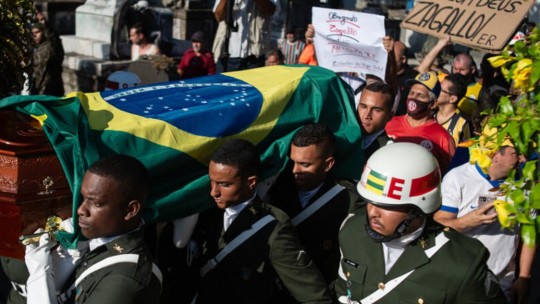
A steady stream of mourners, dressed in black, the yellow of the Brazilian national team, or the colors of the numerous clubs where Zagallo played and coached, filed past his coffin at the Brazilian Football Confederation (CBF) headquarters, whose facade featured a giant banner in his honor.
Brazil’s record five World Cup trophies were on display near the lace-draped coffin. Zagallo, a small left-wing famed for his tactical acumen, was involved in four of them, more than any other player in football history.
The “Professor,” as he was called, was a member of Brazil’s World Cup-winning teams in 1958 and 1962.
He later coached Pele’s 1970 world champion squad, widely regarded as the best team in history, and served as an assistant coach when the “Selecao” repeated the feat in 1994.
“We’ve lost a sporting legend,” Bebeto, a member of the 1994 squad, stated.
“He was my second father,” he told journalists, echoing fellow World Cup champion Cafu (1994 and 2002).
Others who paid their tributes included former Brazil coach Tite and CBF president Ednaldo Rodrigues, who delivered an emotional embrace to Zagallo’s son Mario Cesar.
‘Only one Zagallo’
Claudio Auvarenga, a 64-year-old driver, arrived early to be among the first to walk by the casket.
“You can travel the world and only find one Zagallo.” “No one else in history has won four World Cups,” he told AFP.
Eliana Gaia, 66, Zagallo’s longtime aide, described him as a “human being without equal.”
“He was a magnificent person, a hero,” she went on to say.
Following a public wake and a private service, Zagallo’s casket was lifted atop a bright red fire truck for a funeral cortege through Rio de Janeiro’s streets, as a small gathering of supporters applauded and shouted.
He was later laid to rest in the Sao Joao Batista cemetery, which is home to some of Brazil’s most famous individuals.
Zagallo died on Friday from multiple organ failure, following a string of health issues in recent months.
From Saturday, President Luiz Inacio Lula da Silva has designated three days of national mourning.
Tributes from the football world have also flooded in.
FIFA President Gianni Infantino referred to Zagallo as a “tactical genius,” World Cup winners Ronaldo, Ronaldinho, and Romario praised him, and current Brazil and Real Madrid star Vinicius Junior simply referred to him as a “LEGEND.”
Only Franz Beckenbauer of Germany (1974 and 1990) and Didier Deschamps of France (1998 and 2018) have won the World Cup as both player and coach.
Nostalgia for the good old days
Zagallo is remembered for his warm humor, strong superstition (he swore by the number 13), and fierce passion for the game.
After the famous Pele died in December 2022 at the age of 82, he was the only surviving starter from Brazil’s first World Cup-winning team in 1958.
The defeat comes at a terrible time in Brazilian football.
Brazil fired national team coach Fernando Diniz on Friday after the “Selecao,” who were missing injured sensation Neymar, suffered a humiliating string of losses in World Cup qualifiers.
Brazil is presently sixth in South American qualifying.
Dorival Junior, the coach of Sao Paulo, has been nominated to take over as coach of Brazil, according to the club, though the CBF has yet to confirm this.
CBF chief Rodrigues, who was reinstalled in the role on Thursday amid a lengthy legal struggle over the confederation’s leadership, told journalists at the wake that he “just want(ed) to talk about Zagallo today.”
“This is a time to talk about this legend of Brazilian and world football,” he went on to say.
1 note
·
View note
Text
Zagallo! 1931 — 2024
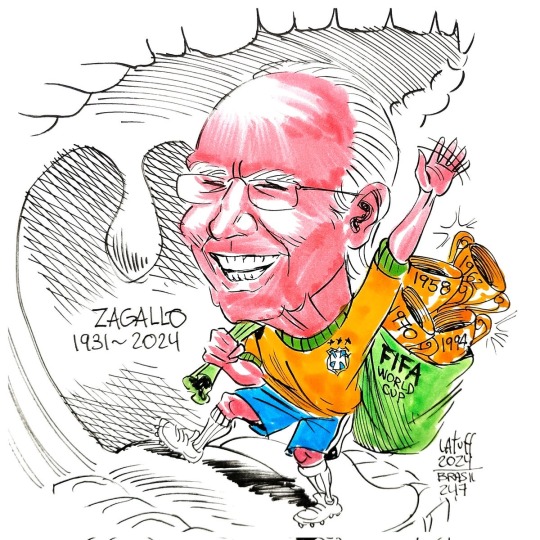
Cartoon By Carlos Latuff
Mário Jorge Lobo Zagallo (9 August 1931 – 5 January 2024) was a Brazilian Professional Football Player, Coordinator and Manager, Who Played as a Forward.
Zagallo holds the record for World Cup titles in general with four titles in total. He also holds the record for World Cup finals with six participations. He was the first person to win the FIFA World Cup as both a manager and as a player, winning the competition in 1958 and 1962 as a player and in 1970 as Manager. In addition, he won the 1994 FIFA World Cup as Assistant Manager. Zagallo also coached Brazil in 1974 (Finishing Fourth) and in 1998 (Finishing as Runners-up) and was a technical assistant in 2006. He was the first of three men, along with Germany's Franz Beckenbauer and France's Didier Deschamps to have won the World Cup as a player and as a manager, and the only one who had done it more than twice.
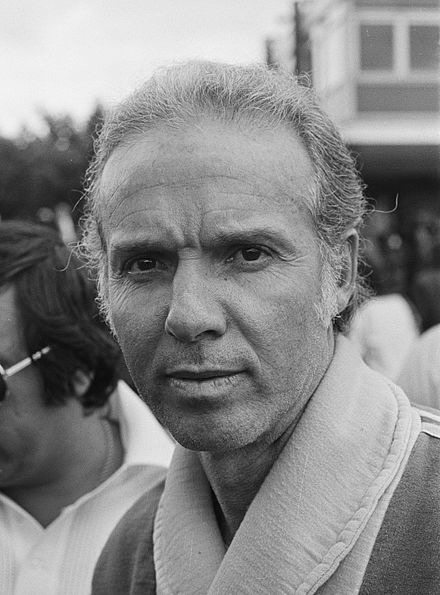
In 1992, Zagallo received the FIFA Order of Merit, the highest honour awarded by FIFA, for his contributions to football. He was named the 9th Greatest Manager of All Time by World Soccer Magazine in 2013. On 5 January 2024, Zagallo died at the age of 92. He was the last surviving Brazilian player who participated in the 1958 World Cup final.
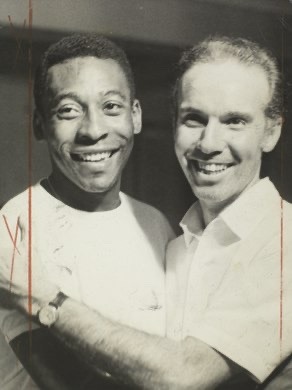
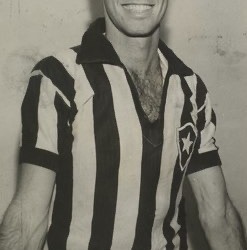
Zagallo with Pelé in 1970 (Left)! Zagallo During His Playing Career (Right)!
Zagallo was born in Atalaia in the northeastern state of Alagoas on 9 August 1931. As a young man, he worked as a soldier and was deployed at the Maracanã Stadium when Uruguay defeated Brazil in the 1950 World Cup final.
Zagallo started his football career with América in 1948, and he later played for Flamengo and Botafogo. Zagallo won the World Cup as a player with Brazil in 1958 and 1962. At the time of the 1958 tournament, Zagallo was a Flamengo player, but by the 1962 event, he was with Botafogo. Zagallo won a total of 33 caps for Brazil between 1958 and 1964.
Managerial Life
Zagallo started his managerial career at Botafogo, the club he had finished his career with, managing them alongside the Brazil national team. Zagallo won the World Cup as a manager in 1970, and as assistant coach in 1994, both with Brazil. He was the first person to win the World Cup both as a player and as a manager. Winning the World Cup in 1970 at the age of 38, he is also the second youngest coach to win a World Cup, after Alberto Suppici, who won aged 31 with Uruguay in 1930.
Zagallo's Brazil team in 1970 played a 4–2–3–1 formation. The team prepared for nearly three months for the tournament, acclimatising to the heat and altitude of the Mexican summer. Zagallo said that the team won most of their games in the second half, where they scored 12 of their 19 goals as opponents tired.
At the 1974 FIFA World Cup in West Germany, Zagallo was disadvantaged by the international retirement of Pelé four years earlier, as well as injuries to Tostão and Carlos Alberto Torres, meaning that only two starting players from the 1970 final were in the squad. Additionally, the team had a lack of competitive practice due to the shelving of the Copa América between 1967 and 1975. In response to Brazil being eliminated by overly physical European sides in 1954 and 1966, Zagallo chose to play in an equally aggressive way. Brazil narrowly made it through the first group stage by one goal in goal difference over Scotland, and missed out on the final after a 2–0 loss to the Netherlands, in which Luís Pereira was sent off for a foul on Johan Neeskens. Poland then defeated Brazil in the third-place playoff.
In 1989, Zagallo was hired by the United Arab Emirates for their qualification campaign for the 1990 FIFA World Cup. He led the amateurs to an unexpected first qualification to the tournament, but left for Vasco da Gama days before the World Cup began and was replaced by Carlos Alberto Parreira.
In November 2002, Zagallo came out of retirement to coach Brazil again, following Luiz Felipe Scolari's exit after winning that year's World Cup. On 20 November, in his only game, the team won 3–2 in a friendly away to South Korea.
Personal Life
Zagallo married Alcina de Castro on 13 January 1955 at the Church of Capuchins in Rio de Janeiro. They remained together until de Castro's death on 5 November 2012.[18] Mário and Alcina had four children. He was a practicing Catholic.
Zagallo's surname was spelled Zagalo for most of his career, including by himself, until he told a reporter in the 1990s that his surname on his birth certificate was Zagallo. He was also the only Brazilian World Cup-winning forward to be known by his surname.
In July 2022, Zagallo was admitted to hospital with a respiratory infection. In August 2023, he was hospitalized for 22 days due to a urinary infection. Following a brief hospitalization in Rio de Janeiro, He Died on 5 January 2024 due to Multiple Organ Failure, resulting from the exacerbation of various pre-existing comorbidities. Zagallo was aged 92.
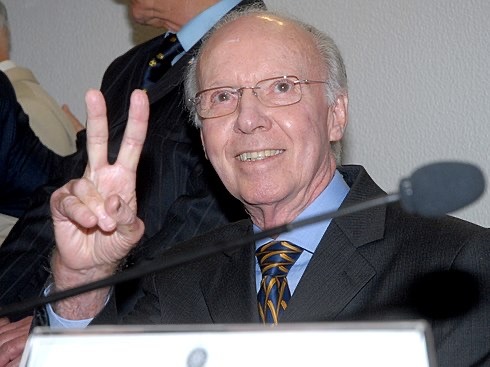
Zagallo in 2008
Nicknames
Zagallo was nicknamed The Professor by his players throughout his coaching career, due to his tactical awareness and commanding presence on the bench. He was also nicknamed Velho Lobo ("Old Wolf") due to his surname "Lobo", which means "Wolf".

1 note
·
View note
Text

Football Legends: Chronicles of All-Time Greats
Explore the Remarkable Journeys of Iconic Footballers Who Redefined Greatness, From World Cups to Golden Boots
Determining the "all-time best top-ranking footballers in the world" is subjective and can vary depending on personal preferences and opinions. However, we can provide you with a list of some of the most iconic football players in history and highlight some of their key achievements. Please note that these rankings may have changed since then, and new talents may have emerged.
In the world of online fantasy games and fantasy football, enthusiasts in Bangladesh have found unique ways to celebrate the sport's legends. While these virtual platforms allow fans to craft their dream teams and test their managerial skills, they also offer a fascinating twist on the appreciation of football greatness. Whether you're managing your team in an online fantasy league or participating in the global phenomenon of fantasy football, the allure of football legends continues to captivate fans worldwide, including those in Bangladesh.
1. Pelé (Brazil):
Pelé is often considered one of the greatest football players of all time. His achievements include winning three FIFA World Cups (1958, 1962, and 1970) and scoring over 1,000 professional career goals.
2. Diego Maradona (Argentina):
Maradona is known for his incredible dribbling skills and the infamous "Hand of God" goal. He led Argentina to victory in the 1986 World Cup and had a successful club career with Napoli and Barcelona, among others.
3. Lionel Messi (Argentina):
As of my last update, Messi had won numerous Ballon d'Or awards and achieved immense success with Barcelona, including multiple UEFA Champions League titles. He has since moved to Paris Saint-Germain (PSG) and continues to be a dominant force in football.
4. Cristiano Ronaldo (Portugal):
Ronaldo is known for his incredible goal-scoring ability. He has won multiple Ballon d'Or awards and has had successful spells at Manchester United, Real Madrid, and Juventus; later, he returned to Manchester United.
5. Johan Cruyff (Netherlands):
Cruyff was a pioneer of "Total Football" and achieved success with Ajax and Barcelona as a player and manager. He won three Ballon d'Or awards and left a lasting impact on the game.
6. Franz Beckenbauer (Germany):
Known as "The Kaiser," Beckenbauer was a versatile defender and won the FIFA World Cup as both a player (1974) and a coach (1990). He had a successful club career with Bayern Munich and the New York Cosmos.
7. Alfredo Di Stéfano (Argentina/Spain):
Di Stéfano was a key figure for Real Madrid during the 1950s and 1960s, helping the club win numerous European Cups (now the Champions League). He is often considered one of the greatest forwards in history.
8. Zinedine Zidane (France):
Zidane was known for his elegance and creativity on the field. He won the FIFA World Cup with France in 1998 and led Real Madrid to several UEFA Champions League titles as both a player and a coach.
9. George Best (Northern Ireland):
Best was a legendary winger known for his dribbling skills. He played for Manchester United and won the Ballon d'Or in 1968.
10. Ferenc Puskás (Hungary):
Puskás was a prolific goal-scorer who played for Real Madrid and Hungary. He won multiple European Cups with Real Madrid and is remembered for his incredible goal-scoring record.
Note: These are just a few of the legendary footballers in history, and there are many more who have left their mark on the sport. Keep in mind that the list is subjective and can vary depending on personal opinions and criteria. Additionally, newer players may have emerged and achieved significant success since our last knowledge update in September 2021.
Download 11Wickets Bangladesh and Join The League.
#fantasysportsapp#fantasysportsplatform#fantasysportsapps#bestfantasyfootballapp#bestfantasyfootballleague#bestfantasyfootballpremierleagueteam#fantasyfootball#fantasyfootballapp#fantasyfootballformoney#fantasyfootballleague#fantasyfootballstrategy#fantasyteamBangladesh#officialfantasyfootball#playfootballonline#playfootballonlineBangladesh#premierfantasyfootball#premierleaguefantasyfootball
0 notes